Best CPUs For RX 9070 And RX 9070 XT GPUs
Introduction
When building or upgrading a gaming PC, the choice of graphics card and CPU plays the most critical role in overall performance. With AMD’s latest Radeon RX 9070 and RX 9070 XT GPUs entering the high-end market, gamers and content creators now have access to immense graphical power, ray tracing capabilities, and advanced AI-driven rendering features. However, pairing these GPUs with the wrong CPU can create performance bottlenecks, limiting their true potential. This makes selecting the right processor just as important as the GPU itself.
Understanding the RX 9070 and RX 9070 XT
The AMD Radeon RX 9070 and RX 9070 XT are designed for enthusiasts who demand top-tier 4K gaming, smooth 1440p performance at ultra settings, and high productivity in content creation workloads. Built on AMD’s latest RDNA architecture, these GPUs deliver enhanced ray tracing performance, massive memory bandwidth, and support for cutting-edge technologies like FSR (FidelityFX Super Resolution) and AV1 encoding. While they excel at rendering visuals, their performance heavily depends on the CPU that feeds them data during demanding gaming and multitasking scenarios.
Why CPU Choice Matters
The CPU acts as the brain of the PC, handling calculations, AI, physics, background tasks, and instructions that the GPU needs to render frames. If the CPU is too weak, the GPU cannot reach its maximum potential, resulting in frame drops, stuttering, or underutilization. This issue is commonly known as a bottleneck. For high-performance GPUs like the RX 9070 and RX 9070 XT, it’s essential to use a CPU with high single-core performance, strong multi-threading, and future-proofing to keep up with modern game engines and workloads.
Matching CPU Power to GPU Strength
The RX 9070 and RX 9070 XT are designed to compete with NVIDIA’s high-end GPUs, meaning they require equally powerful CPUs from both AMD and Intel to unlock their full potential. Pairing them with weaker mid-range CPUs could still work for casual gaming, but those looking for competitive eSports performance, 4K ultra gaming, or heavy multitasking will need to choose higher-end processors. Modern games often demand 6 to 8 strong cores at minimum, but for future-proofing and streaming, 12-core or higher CPUs can make a big difference.
Balancing Performance and Value
While it’s tempting to go for the absolute top-of-the-line CPU, the best choice depends on your workload and budget. Not every gamer needs a flagship CPU, and in many cases, a well-balanced mid-to-high-end processor offers nearly identical gaming performance compared to extreme models, especially when paired with a powerful GPU like the RX 9070 XT. The key is to find the right balance where the CPU complements the GPU without creating bottlenecks while still providing value for money.
Top CPUs For RX 9070 And RX 9070 XT GPUs
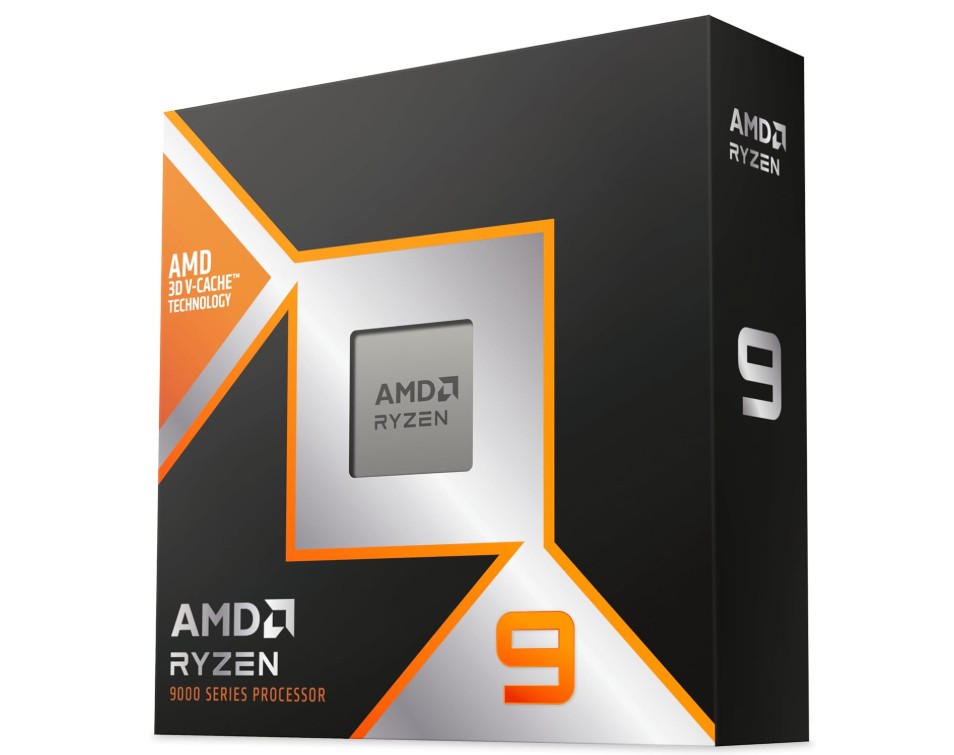
AMD Ryzen 9 9950X3D 16-Core Processor
AMD Ryzen 9 9950X3D 16-Core Processor
The AMD Ryzen 9 9950X3D is a powerhouse CPU that pairs exceptionally well with high-end GPUs like the RX 9070 and RX 9070 XT, offering a balance of raw processing power and advanced gaming optimization. With its 16 cores and 32 threads built on AMD’s Zen 5 architecture, this processor excels in both gaming and productivity, making it an ideal choice for enthusiasts who want top-tier performance without compromise. The addition of AMD’s 3D V-Cache technology gives it a significant edge in gaming scenarios, reducing latency and boosting frame rates in demanding titles, especially at 1440p and 4K resolutions where GPU power dominates but CPU efficiency still matters.
When matched with the RX 9070 or RX 9070 XT, the Ryzen 9 9950X3D ensures there is no bottleneck, allowing the GPU to operate at full potential. This is particularly noticeable in modern AAA games with complex AI, physics, and large open-world environments where the CPU workload can be just as heavy as the GPU’s. The processor’s high boost clocks, combined with its large cache, ensure smooth frame pacing and higher minimum FPS, which is critical for competitive players.
Beyond gaming, the 9950X3D also shines in content creation and heavy multitasking. Tasks like 3D rendering, video editing, and live streaming can run simultaneously without slowdowns, making it a versatile choice for creators who also demand the best gaming experience. Its support for DDR5 memory and PCIe 5.0 future-proofs the system for upcoming technologies, ensuring long-term value.
Verdict
Overall, the AMD Ryzen 9 9950X3D is an excellent match for the RX 9070 and RX 9070 XT, delivering uncompromised gaming performance, superb multitasking capability, and future-ready features. It stands as one of the best CPUs for maximizing the potential of AMD’s latest flagship GPUs.
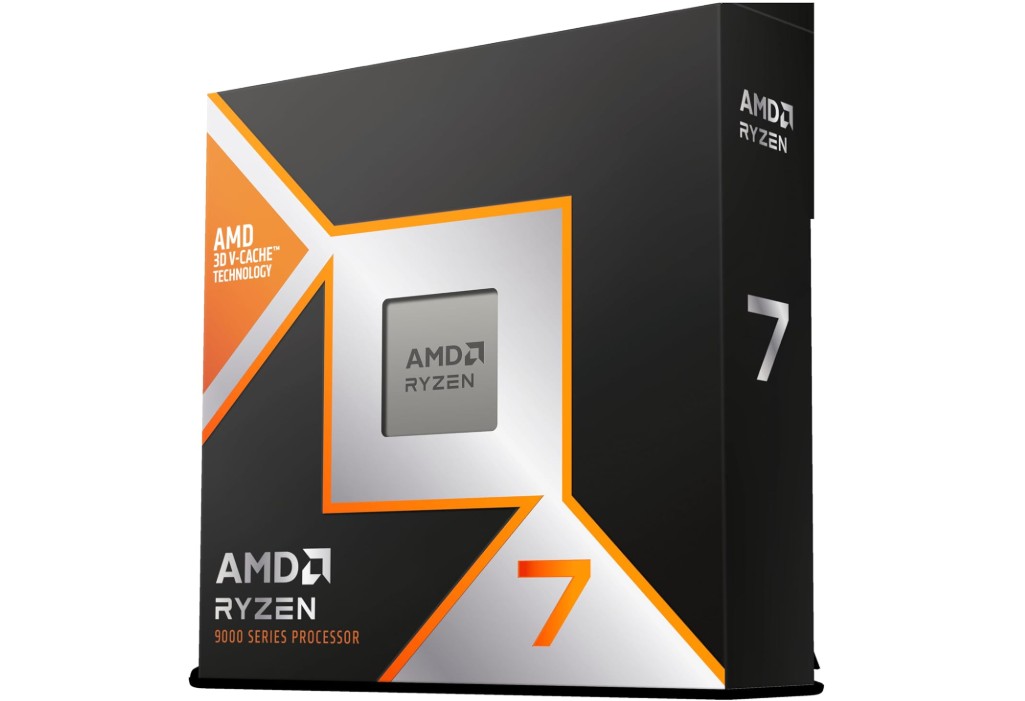
AMD RYZEN 7 9800X3D Desktop Processor
AMD RYZEN 7 9800X3D Desktop Processor
The AMD Ryzen 7 9800X3D is a highly capable gaming processor that makes an excellent pairing with the RX 9070 and RX 9070 XT GPUs. Featuring 8 cores and 16 threads built on the Zen 5 architecture, it delivers a strong balance of efficiency and performance, targeting gamers who want high frame rates without stepping into the extreme multi-core territory of Ryzen 9 models. Its standout feature is the 3D V-Cache technology, which provides a massive increase in cache memory, significantly reducing latency and improving gaming performance, especially in CPU-intensive or open-world titles.
When combined with the RX 9070 or RX 9070 XT, the Ryzen 7 9800X3D ensures that bottlenecks are minimized, even at higher resolutions like 1440p and 4K. The large cache allows smoother frame delivery and better minimum FPS, which directly translates to a more stable gaming experience. While the RX 9070 XT is a flagship GPU that can handle the heaviest graphical loads, the 9800X3D complements it perfectly by providing the processing power needed for complex physics, AI, and background tasks without holding back the graphics card.
The processor is also a solid performer in multitasking and light productivity, though it isn’t designed to compete with higher-core-count CPUs for heavy rendering or professional workloads. Still, for streamers and gamers who want to capture, encode, and play simultaneously, it provides more than enough horsepower. With support for DDR5 memory and PCIe 5.0, it also offers strong future-proofing, ensuring compatibility with next-gen components.
Verdict
Overall, the AMD Ryzen 7 9800X3D is an excellent choice for gamers who want to unleash the full potential of the RX 9070 and RX 9070 XT without overspending on unnecessary cores. It prioritizes gaming performance, stability, and efficiency, making it one of the most well-rounded CPUs in AMD’s lineup for high-end GPUs.
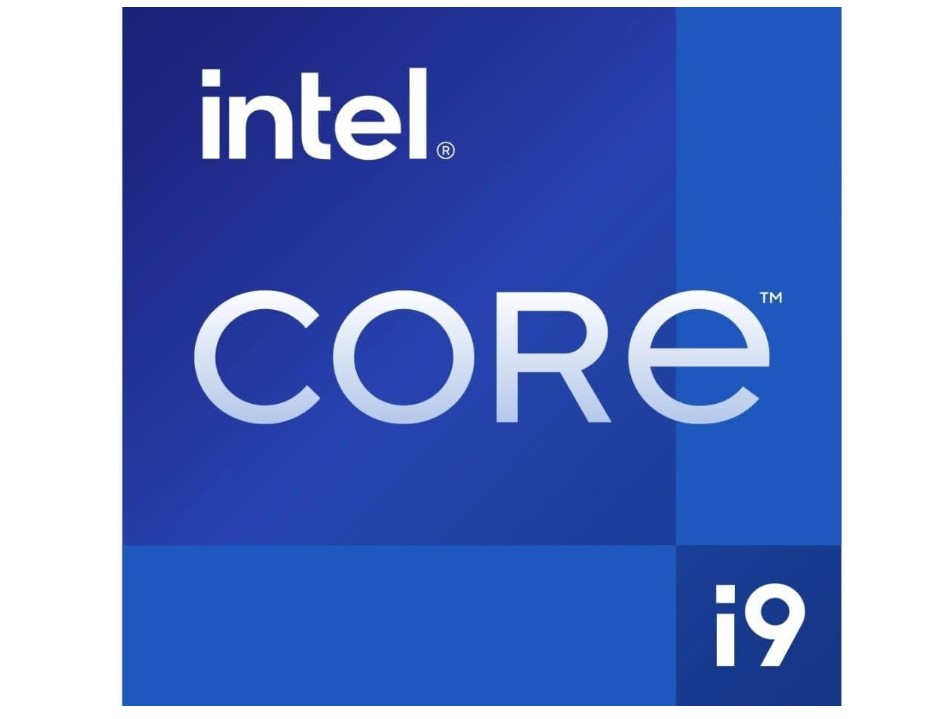
Intel Core i9-14900K Desktop Processor
Intel Core i9-14900K Desktop Processor
The Intel® Core™ i9-14900K is one of the most powerful desktop processors available, designed to push performance limits in both gaming and productivity tasks. With its hybrid architecture of 24 cores, including 8 performance-cores and 16 efficient-cores, alongside 32 threads, it provides a strong balance between raw power and efficiency. The standout feature is its ability to reach up to 6.0 GHz with Intel Thermal Velocity Boost, making it one of the fastest CPUs for high frame rate gaming. When paired with GPUs like the RX 9070 and RX 9070 XT, it ensures minimal bottlenecks and maintains smooth gameplay, especially at 1080p and 1440p where CPU performance plays a bigger role.
The i9-14900K is particularly effective for gamers targeting high-refresh-rate monitors. It keeps frame times consistent, reduces stuttering, and leverages its high single-core performance to ensure demanding titles run seamlessly. For 4K gaming with the RX 9070 XT, the GPU does most of the heavy lifting, but the i9-14900K ensures the system remains responsive and smooth during intensive workloads. Beyond gaming, its multi-core design shines in content creation, video editing, and streaming, where its blend of P-cores and E-cores handles multitasking with ease.
However, the power demands of this CPU are significant. With a base TDP of 125W and turbo draw exceeding 250W, robust cooling and a reliable power supply are essential. It runs hot under heavy loads, meaning high-end liquid cooling or strong air solutions are recommended. While it offers excellent PCIe 5.0 and DDR5 support, the LGA 1700 socket may be nearing the end of its lifecycle, limiting long-term upgrade paths. Still, for users who want cutting-edge performance now, especially to pair with flagship GPUs like the RX 9070 and RX 9070 XT, the Intel Core i9-14900K stands as a top-tier choice.
Verdict
The Intel Core i9-14900K is an excellent high-end CPU that pairs perfectly with the RX 9070 and RX 9070 XT, delivering top-tier gaming performance and strong multitasking power. While it demands robust cooling and higher power, it remains one of the best choices for enthusiasts seeking maximum performance today.
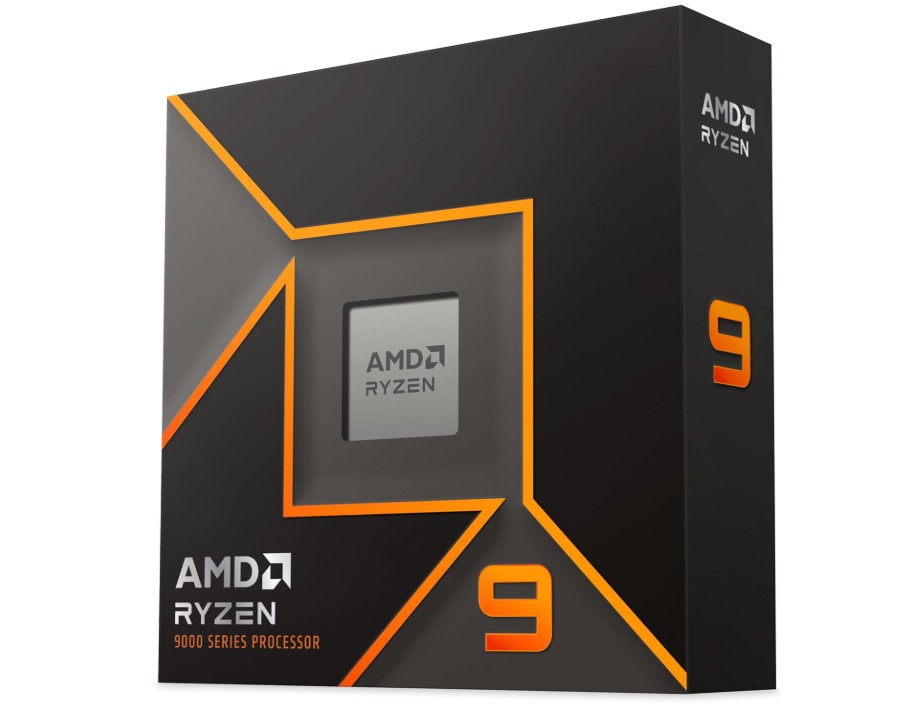
AMD Ryzen 9 9900X Unlocked Desktop Processor
AMD Ryzen 9 9900X Unlocked Desktop Processor
The AMD Ryzen 9 9900X is a strong contender for anyone pairing it with high-end GPUs like the RX 9070 and RX 9070 XT, offering a solid balance between multi-core productivity and smooth gaming performance. With 12 cores and 24 threads built on the Zen 5 architecture, it provides ample power for demanding workloads such as video editing, 3D rendering, and streaming, while also excelling in modern gaming scenarios. Its high base and boost clocks ensure that single-core performance is competitive, which is critical for maintaining strong frame rates in CPU-heavy games.
When matched with the RX 9070 or RX 9070 XT, the 9900X proves to be more than capable of keeping up with the GPUs’ high demands. Gamers can expect smooth frame pacing, minimal stuttering, and higher minimum FPS, which enhances the overall experience at 1440p and 4K resolutions. While the RX 9070 XT targets enthusiasts aiming for ultra settings and ray tracing, the 9900X ensures that the GPU remains fully utilized without hitting a CPU bottleneck. This makes it a reliable choice for those who want excellent gaming performance while also needing strong multi-threading for productivity.
Unlike its 3D V-Cache siblings, the 9900X does not carry the same massive cache advantage in games, but it strikes a better balance between gaming and heavy workloads. This versatility makes it appealing for users who split their time between gaming and content creation. With DDR5 and PCIe 5.0 support, it also guarantees forward compatibility, giving buyers confidence in the longevity of their system.
Verdict
Overall, the AMD Ryzen 9 9900X is a well-rounded processor that complements the RX 9070 and RX 9070 XT perfectly, providing high-performance gaming, smooth multitasking, and future-proof features for enthusiasts who demand both power and versatility.
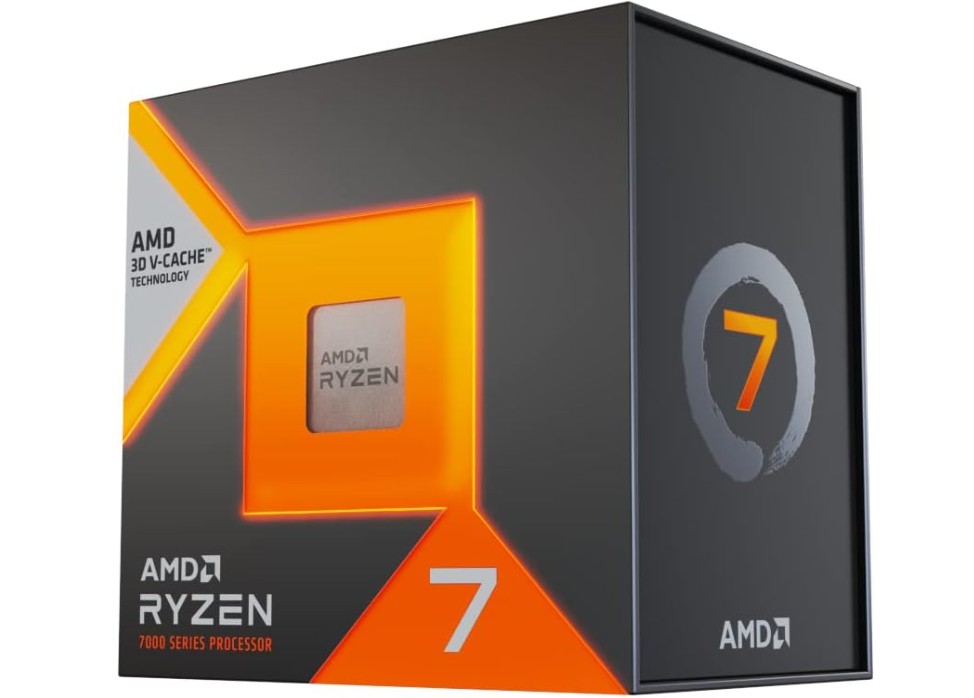
AMD Ryzen 7 7800X3D Desktop Processor
AMD Ryzen 7 7800X3D Desktop Processor
The AMD Ryzen 7 7800X3D remains one of the most efficient gaming processors and pairs extremely well with high-performance GPUs like the RX 9070 and RX 9070 XT. With 8 cores and 16 threads on the Zen 4 architecture, it delivers excellent performance tailored primarily for gaming, where high cache and strong single-core speeds matter most. The inclusion of 3D V-Cache technology is its defining feature, giving it 104MB of total cache that significantly improves gaming performance by lowering latency and boosting frame rates, especially in CPU-heavy titles and large open-world environments.
When matched with the RX 9070 or RX 9070 XT, the 7800X3D ensures smooth frame delivery and helps unlock the GPUs’ full potential, particularly at 1440p and 4K resolutions. Although GPU power dominates at higher resolutions, the CPU still plays a vital role in maintaining consistent minimum FPS and avoiding stutters, and this is where the 7800X3D shines. It provides excellent frame pacing, ensuring that even demanding games with complex AI and physics run seamlessly without bottlenecking the GPU.
For gamers focused purely on performance, the Ryzen 7 7800X3D offers outstanding value compared to higher-core Ryzen 9 models, as its extra cores are rarely necessary for gaming. It also supports DDR5 memory and PCIe 5.0, making it a future-ready choice for upcoming technologies and faster hardware. While it may not be the best option for heavy productivity tasks like rendering or large-scale content creation due to its lower core count, it is more than capable of handling streaming and multitasking alongside gaming.
Verdict
Overall, the Ryzen 7 7800X3D is one of the best processors to pair with the RX 9070 and RX 9070 XT, providing elite gaming performance, smooth frame rates, and strong efficiency, making it a top choice for enthusiast gamers.
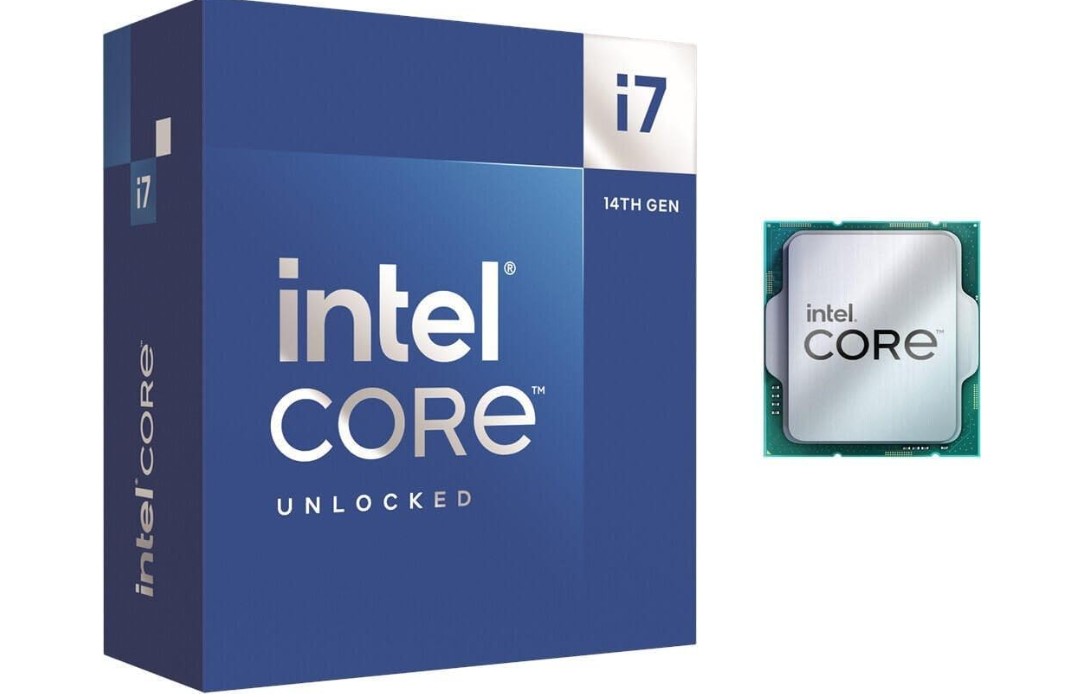
Intel Core i7-14700K New Gaming Desktop Processor
Intel Core i7-14700K New Gaming Desktop Processor
The Intel® Core™ i7-14700K is a strong contender in the high-performance CPU market, offering 20 cores and 28 threads that blend 8 powerful performance-cores with 12 efficient-cores. This hybrid design gives it excellent versatility for gaming and multitasking, making it a great match for high-end GPUs like the RX 9070 and RX 9070 XT. With boost frequencies up to 5.6 GHz, it delivers impressive single-core speed that ensures smooth gameplay, high frame rates, and reduced latency, particularly in CPU-intensive titles and competitive eSports scenarios. When paired with the RX 9070, the processor provides enough power to minimize bottlenecks at 1080p and 1440p, ensuring gamers take full advantage of high-refresh-rate monitors. With the RX 9070 XT, it holds up well even in demanding 4K gaming, keeping frame pacing consistent and supporting the GPU’s potential without major slowdowns.
Beyond gaming, the i7-14700K excels in productivity tasks such as streaming, editing, and rendering. Its large thread count allows creators to multitask efficiently, while still delivering top-tier gaming performance. PCIe 5.0 and DDR5 support make it future-ready, while backward compatibility with DDR4 offers flexibility for budget-conscious builds. Integrated UHD Graphics 770 also provides basic display support when the dedicated GPU is not in use, a handy feature for troubleshooting.
However, this processor comes with high power demands, with turbo consumption reaching over 250W, which means it requires robust cooling and a reliable power supply. Heat management can be a challenge in smaller cases, so high-end air or liquid cooling is recommended. While not as extreme as the i9-14900K, it still falls within the premium category, making it pricier than some alternatives. Overall, the i7-14700K strikes a near-perfect balance between price, performance, and efficiency, making it an excellent choice to pair with the RX 9070 or RX 9070 XT for gamers and creators alike.
Verdict
The Intel Core i7-14700K is a well-balanced high-performance CPU that pairs excellently with the RX 9070 and RX 9070 XT, delivering strong gaming performance and multitasking power at a more affordable price than the i9 series.
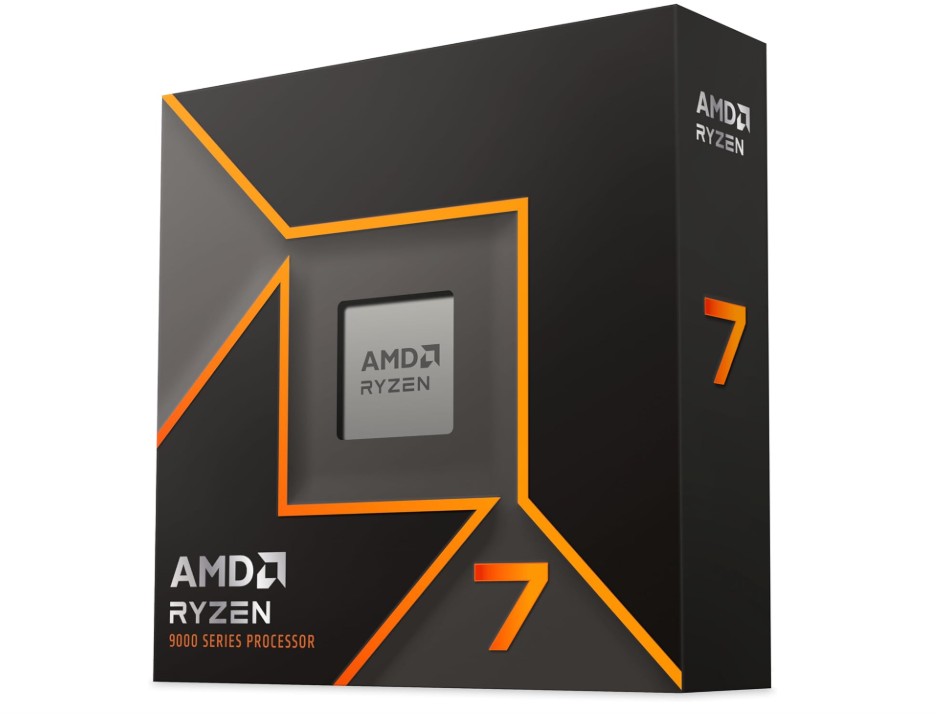
AMD Ryzen 7 9700X Unlocked Desktop Processor
AMD Ryzen 7 9700X Unlocked Desktop Processor
The AMD Ryzen 7 9700X is a well-rounded processor designed for gamers and multitaskers looking to pair it with high-end GPUs such as the RX 9070 and RX 9070 XT. Built on the Zen 5 architecture, it features 8 cores and 16 threads, offering excellent single-core efficiency and multi-core strength for modern gaming and everyday productivity. With high boost clock speeds and improved IPC gains over previous generations, the 9700X ensures that CPU bottlenecks are minimized, making it a strong choice for unleashing the full potential of powerful GPUs.
When paired with the RX 9070 or RX 9070 XT, the 9700X provides smooth and consistent performance at 1440p and 4K resolutions. While the GPU handles most of the graphical load at these settings, the CPU’s role in managing AI, physics, and background processes remains critical. The Ryzen 7 9700X’s strong clock speeds help deliver stable frame pacing and high minimum FPS, ensuring competitive gamers and enthusiasts alike enjoy fluid gameplay. This balance is particularly important in fast-paced titles and open-world games where CPU efficiency can heavily impact the experience.
The processor also excels in multitasking and light productivity, making it suitable for streamers or users who want to run background tasks without impacting gaming. With DDR5 memory support and PCIe 5.0 compatibility, the 9700X is future-ready, providing support for the latest hardware and upcoming technologies. Its efficient 65W TDP also makes it more power-friendly compared to higher-end Ryzen 9 models, reducing heat output and cooling demands.
Verdict
Overall, the Ryzen 7 9700X is an excellent choice for gamers who want a balanced and efficient CPU to pair with the RX 9070 or RX 9070 XT. It delivers the right mix of performance, efficiency, and future-proofing, making it a dependable option for high-end gaming builds.
Buying Guide: Best CPUs for RX 9070 and RX 9070 XT GPUs
The release of AMD’s Radeon RX 9070 and RX 9070 XT GPUs has brought a new wave of excitement to the gaming and creator community. These cards are designed to deliver stunning performance for 1440p high-refresh-rate gaming and uncompromising 4K visuals, as well as exceptional productivity in rendering, streaming, and AI-driven workloads. But to fully harness their power, you need the right CPU.
Pairing a high-end GPU with a weak processor creates a bottleneck—a situation where the CPU cannot keep up with the GPU, causing frame drops, stuttering, or underutilization of the graphics card. Choosing the right CPU ensures smooth gameplay, high minimum FPS, and the best return on your GPU investment.
Key Factors When Choosing a CPU for RX 9070 and RX 9070 XT
Pairing AMD’s powerful RX 9070 and RX 9070 XT with the right CPU is essential to maximize performance and ensure your system runs smoothly. These GPUs are designed for high-end gaming, streaming, and productivity, but the CPU is responsible for keeping them fully utilized. Below are the key factors you should consider when deciding which processor will best complement these GPUs.
1. Avoiding Bottlenecks
The biggest mistake many users make is pairing a powerful GPU with a weak CPU. This creates a bottleneck, where the GPU is capable of rendering more frames but the CPU cannot supply enough data to keep up. For GPUs like the RX 9070 and RX 9070 XT, the CPU should be powerful enough to handle AI, physics, and multitasking while keeping frame pacing smooth. Generally, a modern 8-core CPU is the minimum recommendation, while 12–16 cores provide future-proofing.
2. Core Count and Threads
Core and thread count directly influence multitasking and productivity workloads, while games often rely on fewer but faster cores.
- 8-Core CPUs: Great for gaming, sufficient for RX 9070. Best suited for gamers who don’t do heavy streaming or content creation.
- 12-Core CPUs: Balanced for gaming and productivity. Ideal for RX 9070 XT where higher frame rates and multitasking are expected.
- 16-Core CPUs: Overkill for most gamers but excellent for creators who also want maximum gaming performance.
For pure gaming, AMD’s X3D CPUs with 8 cores often outperform higher-core CPUs due to massive cache sizes.
3. Clock Speed and IPC (Instructions Per Cycle)
A CPU’s clock speed and IPC improvements are critical for gaming. High boost clocks improve responsiveness, reduce frame time variance, and deliver smoother FPS.
- AMD Zen 5 and Zen 4 CPUs: Strong IPC and high boost clocks up to 5.7 GHz.
- Intel 13th/14th Gen CPUs: Competitive clock speeds, often exceeding 6.0 GHz in peak boost.
The RX 9070 XT, being a flagship GPU, benefits most from CPUs with both strong IPC and high boost clocks to ensure consistent performance.
4. Cache Size
One of the most underrated aspects of CPU performance is cache size. AMD’s 3D V-Cache technology has proven to be a game-changer for gaming. Large caches reduce latency and provide quicker access to data, directly boosting frame rates, especially in open-world or CPU-heavy titles.
- X3D CPUs (e.g., Ryzen 7800X3D, 9800X3D, 9950X3D): Best gaming CPUs due to massive cache.
- Non-3D CPUs: Still strong, but slightly behind in gaming performance.
If your primary focus is gaming, choosing a CPU with 3D V-Cache ensures you get the best pairing with the RX 9070 or RX 9070 XT.
5. Platform Longevity (Socket and Chipset)
Platform choice determines future upgrades and system compatibility:
- AMD (AM5 Socket): Supports DDR5 and PCIe 5.0, with AMD’s track record of supporting sockets for multiple CPU generations. Likely the best long-term investment.
- Intel (LGA 1700 Socket): Supports DDR5 and PCIe 5.0, but nearing its end of life with Intel moving to new sockets soon. Still offers excellent current-gen performance.
If you want future upgrade paths, AMD AM5 motherboards are more appealing.
6. Memory Support (DDR5 vs DDR4)
Memory compatibility impacts both performance and cost:
- DDR5: Offers higher bandwidth and faster speeds, perfect for high-end GPUs like RX 9070 XT. Future-proof standard.
- DDR4: More affordable, but starting to limit performance in modern builds.
For a system built around RX 9070 or RX 9070 XT, DDR5 is the clear choice. CPUs with DDR5 support ensure optimal performance and longevity.
7. PCIe Support
The RX 9070 and RX 9070 XT fully utilize PCIe 4.0 and 5.0 bandwidth. While PCIe 4.0 is enough for now, PCIe 5.0 future-proofs your build for next-gen GPUs and SSDs.
- AMD Zen 5 CPUs: Native PCIe 5.0 support.
- Intel 13th/14th Gen CPUs: PCIe 5.0 on supported chipsets.
Choosing a CPU with PCIe 5.0 ensures your system is ready for upgrades down the road.
8. Power Consumption and Cooling
High-end CPUs often consume 120–170W under load, which requires strong cooling solutions. The CPU you choose should match your cooling setup and case airflow.
- Ryzen 7 9700X: 65W TDP, efficient and cooler-friendly.
- Ryzen 9 9950X3D or Intel i9-14900K: Higher TDP, require high-end liquid or air cooling.
If you value quiet operation and lower power bills, efficient CPUs like the Ryzen 7 9700X or Ryzen 7 7800X3D are better choices. For maximum performance, be prepared to invest in robust cooling solutions.
9. Gaming vs Productivity Balance
Different users prioritize different workloads:
- Gaming First: Choose CPUs with 3D V-Cache (Ryzen X3D series). These provide unmatched gaming FPS.
- Gaming + Content Creation: Go with higher-core CPUs (Ryzen 9 9900X, Intel i9-14900K) that balance gaming with productivity workloads like rendering and editing.
- Budget Builds: Ryzen 7 9700X or Intel i5-14600K provide excellent performance at a lower cost.
Your workload outside gaming should guide your CPU choice.
10. Resolution and Refresh Rate Goals
The resolution and refresh rate you target impact how CPU-dependent your build will be:
- 1080p High Refresh (144Hz+): Very CPU-dependent. Needs top single-core performance to avoid bottlenecks.
- 1440p: Balanced workload between CPU and GPU. Mid-to-high-end CPUs perform well.
- 4K Ultra: Mostly GPU-bound, but a weak CPU can still cause dips in minimum FPS. High-end CPUs ensure smoother frame pacing.
For RX 9070 XT, aiming at 1440p high-refresh or 4K ultra requires strong CPUs like Ryzen 7 9800X3D or Intel i7-14700K.
11. Overclocking and Tuning
Overclocking can squeeze extra performance out of a CPU, but not all processors benefit equally:
- Intel “K” Series CPUs (e.g., i9-14900K): Fully unlocked for overclocking, though power draw increases significantly.
- AMD Non-X3D CPUs: Allow some overclocking and tuning.
- AMD X3D CPUs: Locked for core overclocking, but memory tuning can still yield performance gains.
If you enjoy tweaking your system, Intel’s unlocked CPUs provide the most headroom.
12. Budget Considerations
Not every gamer needs the flagship CPU. Sometimes, a mid-tier CPU can deliver 95% of the performance at a fraction of the cost. For example:
- Best Value for Gaming: Ryzen 7 7800X3D or Ryzen 7 9800X3D
- Balanced Gaming + Work: Ryzen 9 9900X or Intel i7-14700K
- Budget Builds: Ryzen 7 9700X or Intel i5-14600K
Always weigh how much extra performance you’ll actually use against the cost of higher-tier CPUs.
13. Upgrade Path and Longevity
Your CPU should ideally last through multiple GPU generations. Choosing a slightly more powerful CPU now can prevent you from needing to upgrade prematurely.
- AMD AM5 CPUs: Likely to support future Zen generations, extending upgrade options.
- Intel LGA 1700 CPUs: Excellent performance now, but upgrade path is limited with Intel moving to new sockets.
For users focused on longevity, AMD’s AM5 platform is the safer bet.
14. Use Case Scenarios
- Competitive eSports Player: Ryzen 7 9800X3D or Intel i7-14700K for maximum FPS.
- 4K Single-Player Enthusiast: Ryzen 9 9950X3D or Intel i9-14900K for smooth visuals and future-proofing.
- Streamer + Gamer: Ryzen 9 9900X for balanced cores and speed.
- Budget Gamer: Ryzen 7 9700X or Intel i5-14600K paired with RX 9070.
Choosing the right CPU ensures your build matches your specific needs rather than overspending unnecessarily.
Final Thoughts
The RX 9070 and RX 9070 XT are incredibly powerful GPUs, but they can only perform to their fullest when paired with the right CPU. Key factors such as core count, cache size, platform longevity, and efficiency play critical roles in determining how well your GPU investment pays off.
- For pure gaming, AMD’s 3D V-Cache CPUs remain the gold standard.
- For balanced gaming and productivity, higher-core AMD Ryzen 9 or Intel Core i9 models are the best choice.
- For budget-friendly high-end builds, Ryzen 7 9700X or Intel i5-14600K deliver excellent results without overspending.
By carefully considering these factors, you can build a system that not only maximizes the performance of your RX 9070 or RX 9070 XT but also remains relevant and powerful for years to come.
A passionate tech enthusiast with a deep interest in the latest innovations, gadgets, and emerging technologies. Always eager to explore cutting-edge hardware and software, I enjoy sharing insights, reviews, and recommendations to help others make informed decisions in the ever-evolving tech world. With a curious mindset and hands-on approach, I stay up-to-date with industry trends, from PCs and gaming to mobile devices and AI-driven tools.






